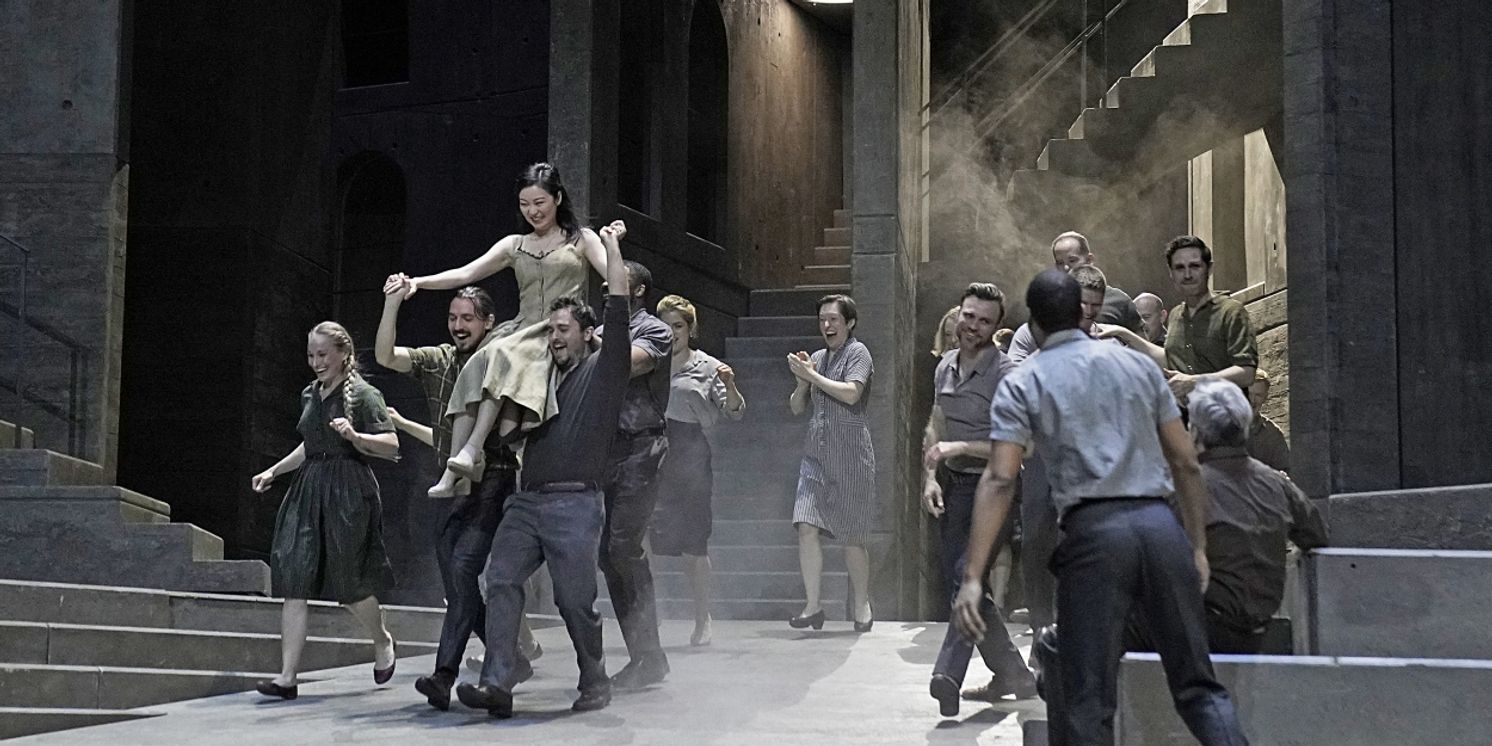Review Roundup: Ivo van Hove's DON GIOVANNI Opens at the Metropolitan Opera
The production runs through June 2.

Ivo van Hove, the Tony Award-winning director of Broadway's A View from the Bridge, is making a major Met debut with Mozart's Don Giovanni (May 5-June 2), re-setting the familiar tale of deceit and damnation in an abstract architectural landscape and shining a light into the work's dark corners.
Also making her Met debut, Maestro Nathalie Stutzmann leads a star-studded cast that includes baritone Peter Mattei, considered one of today's great Don Giovanni interpreters, alongside the Leporello of bass-baritone Adam Plachetka. Sopranos Federica Lombardi, Ana María Martínez, and Ying Fang portray Giovanni's conquests-Donna Anna, Donna Elvira, and Zerlina-with tenor Ben Bliss as Don Ottavio, bass-baritone Alfred Walker as Masetto, and bass-baritone Alexander Tsymbalyuk and bass Dmitry Belosselskiy sharing the role of the Commendatore. Soprano Andrea Caroll sings Zerlina for the performance on June 2.
The creative team includes set and lighting designer Jan Versweyveld, costume designer An D'Huys, and projection designer Christopher Ash, all making their Met debuts, as well as choreographer Sara Erde.
The production is the first of two new Mozart stagings opening at the Met in May. Die Zauberflöte opens on May 19, also conducted by Maestro Stutzmann, and directed by Simon McBurney, who is making his Met debut.
Let's see what the critics had to say...
Zachary Woolfe, New York Times: Even though his staging dresses centuries-old characters in contemporary clothes and sets them in a courtyard of recognizably modern (if eerily anonymous) architecture, it's clear that van Hove believes in good old-fashioned damnation. He is willing to embrace, however austerely, the supernatural side of this Mozart classic, its surreal theatrical conventions.
Known for his plain, harsh adaptations of plays like "A View From the Bridge" and "The Crucible," van Hove doesn't strain here to prove all the plot's deceptions, maskings, misrecognitions and ghosts. If someone says he is someone else, the other characters simply accept that, even if he is obviously still himself.
George Grella, New York Classical Review: The production doesn't solve the central problem of Don Giovanni, which is the difficult balance between the lead character, who is not just the antagonist but a quasi-psychopathic rapist and murderer, and Leporello. The latter is servant and enabler to Giovanni, always trying to put an end to the mayhem but never able to leave his master's side, the comic foil to a villain with no redeeming qualities save charisma. In nearly identical modern dress (instead of swords and breeches, there are automatic pistols and suits), the staging hints at some kind of boss-worker relationship, or even a metaphysical doppelgänger situation, without ever honestly committing to either idea.
- To read more reviews, click here!
- Discuss the show on the BroadwayWorld Forum
Reader Reviews
Videos
